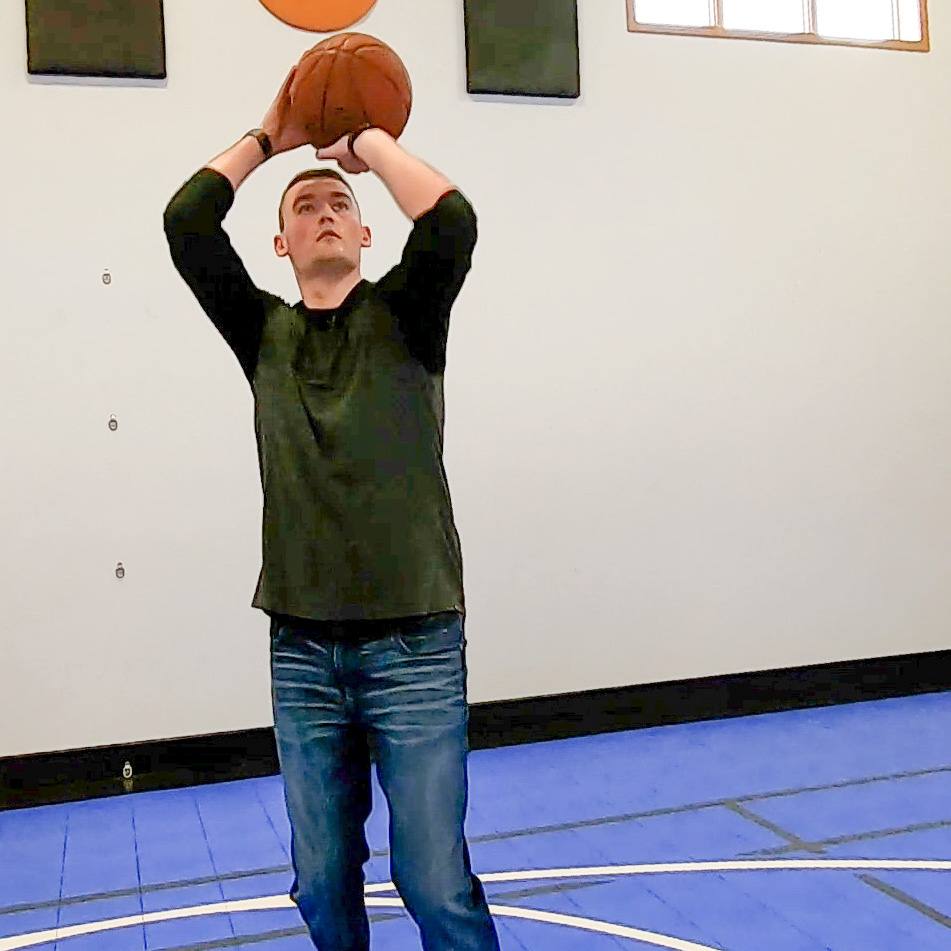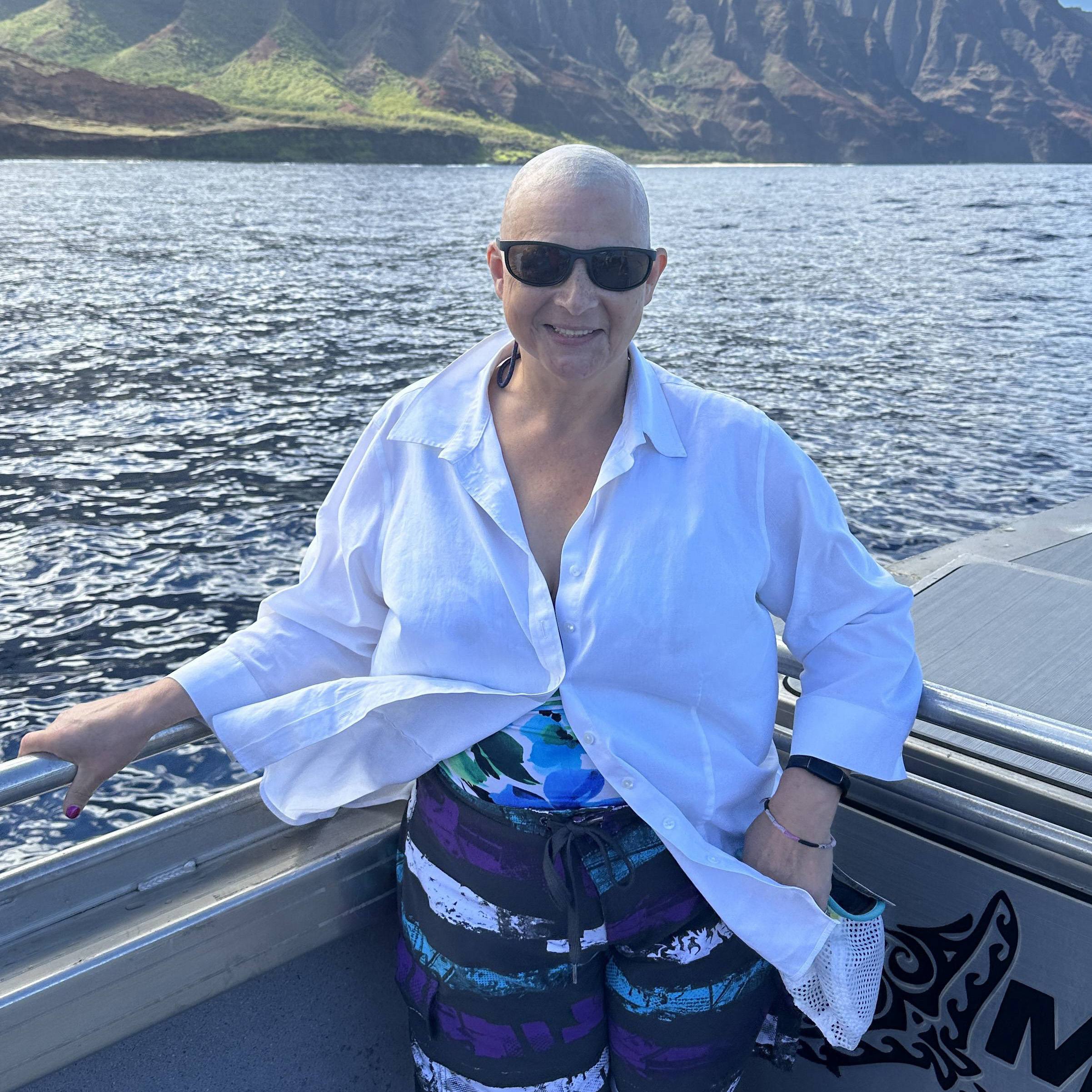
On a summer evening in July 2018, Dan Boswell was hit by a stroke. His wife's quick action to summon emergency help likely saved his life. Today, with the help of his Mayo Clinic team, Dan is doing all he can to recover from the stroke and meet his goal of returning to work.
It was a typical summer evening in July 2018 when Dan Boswell left work to go home and let his dog out. Then in an instant, his life changed.
"My arm seemed funny, and then, boom, I hit the floor," says Dan, a resident of Mankato, Minnesota. "I fell by the front door. I crawled up the stairs to find my phone, and I called my wife."
Dan was unable to articulate to his wife what was happening to him. But she immediately knew he needed help and called 911. What followed over the next several hours was a blur of emergency medical care followed by days in the ICU. Dan had suffered a stroke. He is one of nearly 800,000 people in the U.S. who have a stroke each year.
Dan knew before his stroke that he had high blood pressure. He had been taking medication for the condition, but he wasn't regularly monitoring his blood pressure. He had not been ill before that July night, and he hadn't felt differently the day leading up to the event. "I didn't see it coming," he says.
Facing the aftermath
Dan was fortunate that his wife picked up on the signs of an emergency and called for help. Knowing the signs and symptoms of a stroke and getting medical attention right away can make a huge difference. The longer a stroke goes untreated, the greater the potential for brain damage and disability.
In Dan's case, the stroke affected both his speech and his movement. "When he was in the hospital, he could not talk at all," says Sarah Krenik-Hoffmann, a speech-language pathologist at Mayo Clinic Health System in Mankato. "He also had complete hemiparesis on his right side, which means right-side weakness — a loss of muscle strength."
Due to the stroke, Dan has apraxia of speech, or difficulty with motor planning of the speech muscles. He also has aphasia, which affects the ability to speak, read and write. To understand aphasia, it's helpful to think of a filing cabinet. A person with normal speaking abilities has a filing cabinet full of organized words that can be located and used instantly. The stroke had strewn Dan's files all over the floor. He has to find them, organize them and put them back in the cabinet, which is an ongoing process.
"There's no cognitive impairment," Krenik-Hoffman says. "It's in there, but you can't bring it out."
Making good progress
After the stroke, Dan participated in inpatient rehabilitation at Mayo Clinic's Rochester campus for 25 days, where he had speech, physical, occupational and recreation therapies. After he was discharged in August 2018, his wife continued to drive him to Rochester for therapy until he began treatment three days a week in the Physical Medicine and Rehabilitation Department in Mankato in October.
That's when he started meeting with Krenik-Hoffmann for speech therapy, Elisabeth Wech, D.P.T. for physical therapy, and Elizabeth Wargelin for occupational therapy. Since then, Dan has been working on exercises and other techniques to improve movement on his right side. He's also been focusing on his speech.
"We've been working on learning to read, reading comprehension and spelling, and that's all getting much better," Krenik-Hoffman says. "We have also been working on speech production and articulation. We'll give him phrases loaded with certain sounds that he has particular difficulty with, and he'll work on them. After a while, his mouth gets tired. But he's doing so much better."
Setting new goals
All of Dan's Physical Medicine and Rehabilitation care providers work together to coordinate his care. They discuss goals with him to chart the right course. And that course for Dan points to a specific goal: "I would like to go back to work."
Krenik-Hoffman says working toward that type of milestone fuels her team's motivation. "We'll keep working with Dan until he's met a plateau," she says. "With most stroke patients, we'll work with them a year or more. But Dan has been really motivated. We'll see when that year mark gets here. He's been an easy one. He's continued to make such great progress."
Dan also has started going to a stroke support group. He says he would recommend that kind of group to anyone who has experienced a stroke. He also has another piece of advice: "Get your blood pressure checked."
Note: A version of this story previously was published on Hometown Health.
HELPFUL LINKS
- Know the signs and symptoms of stroke.
- Read more about stroke care at Mayo Clinic.
- Connect with others talking about stroke on Mayo Clinic Connect.
- Explore Mayo Clinic Health System.
- Request an appointment.
Related Articles







